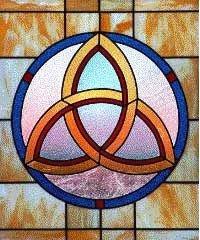
“And God said, Let us make man in our image, after our likeness: and let them have dominion over the fish of the sea, and over the fowl of the air, and over the cattle, and over all the earth, and over every creeping thing that creepeth upon the earth.” (Genesis 1:26 KJV)
God said, “Let there be light: and there was light” (Gen. 1:3). God said, “Let there be a firmament in the midst of the waters” (v.6), “Let the earth bring forth grass” (v.11), “Let the waters bring forth abundantly the moving creature” (v.20), “Let the earth bring forth the living creature after his kind” (v.24). Now, in verse 26, God says, “Let us make man in our image.”
There is no doubt that the creation of man was a special act of Creation. It is distinguished from everything else that God made. There is no command given to the Earth to bring forth man and no mention of man being created “after his kind.” God created man in His very own image and after His own likeness.
The language used here in the first part of Verse 26 is quite interesting. God said, “Let us make man in our image.” Who exactly is the us to whom God is referring? Several interpretations have been given to this enigmatic usage of the words us and our in this verse. Some have suggested that God is referring to a Heavenly court of His angels. But is man created in the image of angels? No, angels are described as ministering spirits who minister for the servants of God (Hebrews 1:14). Others have suggested that the plural usage is to demonstrate the greatness and grandeur of God, sort of the way monarchs would refer to themselves in the plural to demonstrate their greatness. But wouldn’t it make sense that God would invariably refer to Himself in this manner if such were the case? We do not read of God throughout the Bible introducing Himself as, “We are the Lord your God”, do we? No, in fact He introduces Himself to Moses as the “I Am” (Exodus 3:14).
The two words that open Genesis 1:26 give us a lot of insight into what the verse actually means by using the words us and our. “God said.” In the Hebrew, the word used for God is Elohim. It is actually a plural form of God that could also be translated as gods (meaning more than one). Yet the word translated as said is a singular verb. In English, we use said for both the singular and the plural, but in Hebrew it is different. If we were to use a different English verb, the distinction would be more noticeable. For example, if we were to substitute the verb to run for the verb to say, the direct translation would be , “Gods runs” instead of “Gods run.” So we have a plural noun doing a singular action. The writer of Genesis has either made a terrible grammatical error or he is telling us about the nature of God.
God is a Trinity. God is the Father, the Son, and the Holy Spirit. Genesis 1:2 shows us the Holy Spirit at the very beginning in action, moving upon the Earth in Creation. Colossians 1:16-17 tells us that Jesus Christ was before all things were created and that it was by Him and for Him that all things were made. God conferred within Himself when He made man. The Father, Son, and Holy Spirit created man in His own image. Man has the ability to understand and to reason, he has morality that transcends his instincts, he has the ability to speak and to exercise his will. And he has the ability to fellowship with his Creator. Mankind is truly fearfully and wonderfully made!
To Jesus Christ goes all glory. In service to Him,
Loren
[This post was originally published July 24, 2009]
**Unless otherwise indicated, all Scripture quotations are taken from the New American Standard Bible (NASB) © The Lockman Foundation and are used by permission.
[If you do not know the Lord Jesus Christ or you are not certain where you are headed when this life ends, I invite you to read the article “Am I Going To Heaven?“]
Advertisements